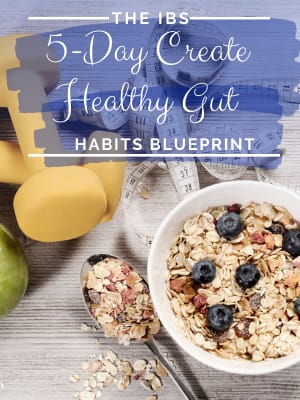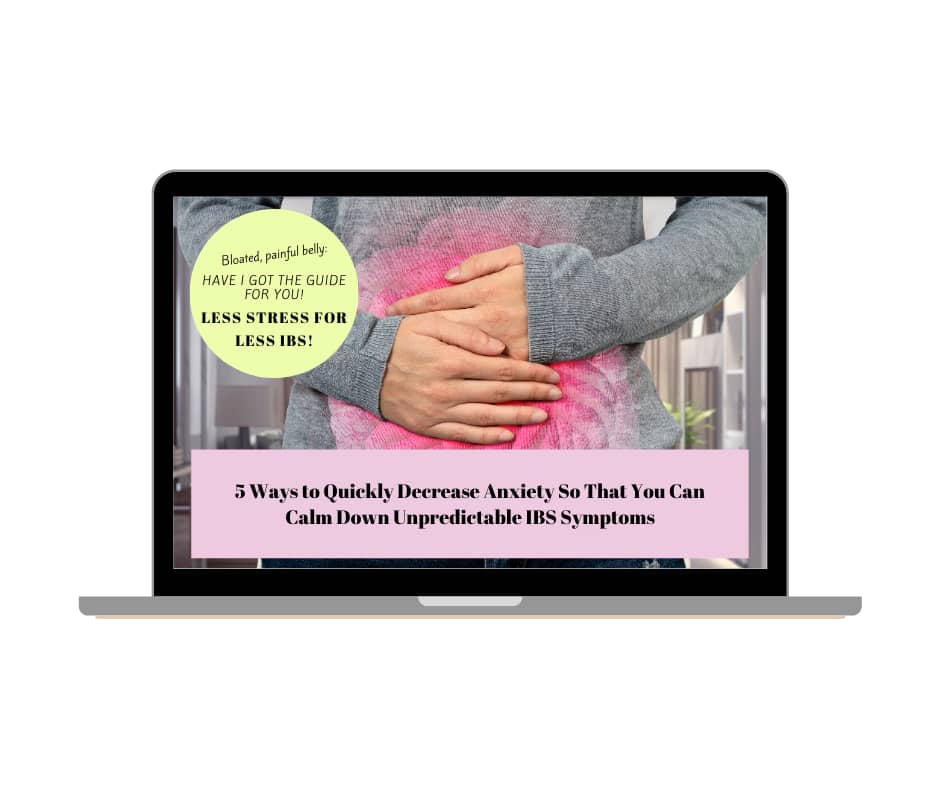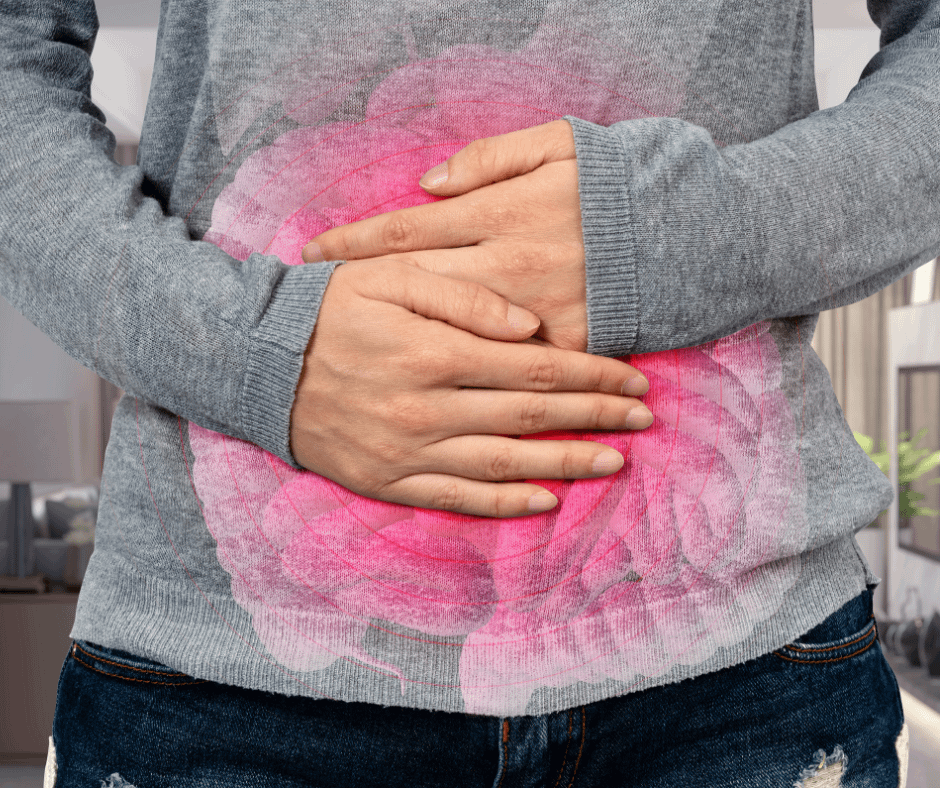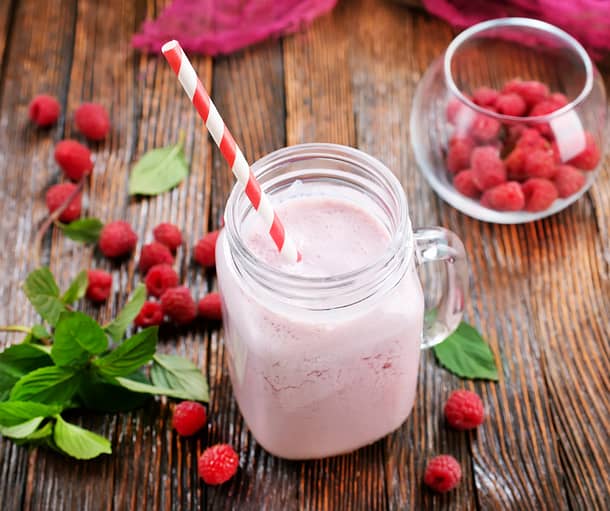
Secrets to Why You Need to Exercise for IBS
Secrets to: Why You Need to Exercise for IBS!
MY EXPERIENCE WITH IBS AND EXERCISE:
I know without a doubt that one reason I am able to keep my gut symptoms under fairly consistent control is because I am committed to my fitness routine.
Do I love working out? No. Do I look forward to my 5 or 6 workouts every week? Sometime I do, sometimes I don’t. Are there times when the combination of IBS and exercise makes things difficult? For sure? Without a varied fitness routine would my life with IBS look drastically different? Most definitely!
When your gut symptoms are acting up, the last thing in the world that you may want to do is exercise. I know this first-hand! This can easily lead to a pattern of avoiding a fitness routine out of fear of symptoms occurring or getting worse.
But, it is important to know that regular exercise can be an excellent tool in managing your gut symptoms, including those of Irritable Bowel Syndrome (IBS). The numerous benefits of physical activity make it well worth the effort to find a way to establish a consistent exercise schedule.
I promise.
In fact, one study about exercise and IBS concluded that ‘physical activity should be used as a primary treatment modality in IBS’! Considering all of the unwanted side-effects medications can have, the fact that exercise could be a main form of treatment is amazing!
So, you have done your workout and your gut is thanking you. Don’t undo all that hard work by not fueling your body in the best possible way!
Get your FREE Gut-Friendly, Post-Workout Recipe Collection below for one full week of wholesome, energy-providing breakfast recipes. Make sure you are keeping your belly happy after the workout too! ![]()
IS EXERCISE REALLY THAT GREAT FOR YOUR GUT?
Let’s first look at how exercise can improve symptoms and quality of life if you have IBS or other gut challenges. Some of the bonuses you can expect:
- Mild forms of exercise (study participants pedaled a stationary bike) have been shown to reduce one of the most common symptoms of IBS, bloating!
- Working out produces feel-good, anti-inflammatory compounds called endorphins…who doesn’t want to feel happier?
- Cardio activities improve circulation
- If you have IBS-C (with constipation) exercise can be an effective way to get things moving again: it stimulates muscle contractions in your digestive tract and it speeds up colonic transit time
- Moderate increases in physical activity have demonstrated improvements in psychological factors of IBS including fatigue, anxiety and depression
- It can produce chemicals that improve brain function
- Exercise counteracts the effects of stress, which is known as a common trigger of IBS flare-ups and gut problems in general
- Being physically active can improve quality of sleep which allows the body to more effectively rest and repair itself
- The results of fitness training such as strength and endurance, may make it easier to deal with painful IBS flares
- 6 weeks of exercise can positively change and balance the intestinal microbiome (collection of bacteria and other organisms in your gut) by encouraging the growth of bacteria that produce short chain fatty acids which reduce the risk of inflammatory disease states (most chronic conditions that are common today are due to inflammation!)
- Cardiovascular training can increase the amount of mitochondria (remember high school biology? —- the powerhouses of the cell) and the enzymes used to create energy within the cells. That means more ENERGY and less fatigue!
Wow!
If you have frustrating gut symptoms or IBS, I hope that list inspires you to continue with your fitness habit, or to take the first steps on your fitness journey.
What might that look like for someone new to fitness? Good question!
That depends on your predominant symptoms. Do you have IBS-C (with constipation) or IBS-D (with diarrhea)?
IBS-D AND EXERCISE:
IBS-D is somewhat trickier, especially if your symptoms are severe.
But trickier does not mean impossible.
Consider these options:
- Start slow if you are newer to fitness to see how your body responds to increased movement. Low impact activities such as walking at a quick pace, strength training, leisurely biking or yoga are just a few options.
- Endurance type exercises such as long distance running can be a problem because of the lack of blood flow to the digestive system that is a result of this type of ‘stressor’ to the body.
- Search for fitness routines you can begin at home to reduce anxiety about having to run to the bathroom. One positive result of the current pandemic is the availability of tons of workout options in places like YouTube or with instructors and trainers via live interactive classes using platforms such as Zoom. You can try anything from dance classes to pilates to strength training to kick-ass cardio. Check these out!
- If you are experiencing a flare up of symptoms, it is best to avoid high impact or high intensity workouts such as running, Cross-Fit or sports such as soccer. These may exacerbate your symptoms and cause discomfort.
- Come at the problem from 2 diresctions: try switching up your diet to minimize your symptoms while working on your fitness. Check out the style of eating I find most helpful here.
- Most importantly, experiment and find an activity that you enjoy doing so that fitness becomes a habit you maintain over your lifetime.
Personally, I like a lot of variety in my fitness program. Somedays I want to swing a kettlebell. Others I want to practice martial arts. Sometimes I want to lift heavy weights. And still others I crave a gentle yoga routine.
Variety is the spice of life! If it helps you to consistently move your body, I say be daring and try new things that spark your interest.
IBS-C AND EXERCISE:
With this type of IBS, the anxiety about needing a restroom nearby is lessened. If you have IBS-C consider:
- Increased intensity or endurance activities that can move things along and reduce intestinal transit time. This can actually help improve constipation.
- Try working with a trainer or coach to establish some goals for your overall health living with a chronic digestive condition. Sometimes a little accountability and guidance can go a long way!
- Find a gym/workout partner that is eager to try new classes with you to make your workouts a time of connection as well as fitness. Experiencing a sense of community is incrediblly beneficial for gut health!
Regardless of the type of IBS you have:
- Pick an ideal time for you and your belly to exercise. Experiment with different times of day and see if one is consistently better for you and your symptoms. I would not recommend doing a work out that is very taxing within an hour of eating. Start to notice when your energy levels are at their peak and if possible, get some movement in around that time.
- Be compassionate! If you have IBS, you know one thing for sure: there are going to be good days and there are going to be not so good days. So take advantage of those good days and give your fitness routine 100%. And on the truly horrible days give yourself permission to take it easy. Do some light stretching, or take a walk outside, or listen to a systematic relaxation.
- One gift you can give yourself when living with IBS is the ability to tune into and listen to your body’s needs. We want the benefits of fitness, not to make ourselves feel worse!
What do you think?
So please don’t dismiss or give up on exercise because of your IBS or frustrating gut symptoms!
It is a remarkable tool to have in your toolkit when trying to improve your daily symptoms and improve your quality of life! Be sure to always check with your health care provider before beginning any new fitness program and don’t forget to drink your water! 🙂
If you have any questions about exercise and your IBS symptoms I would love to hear from you!















